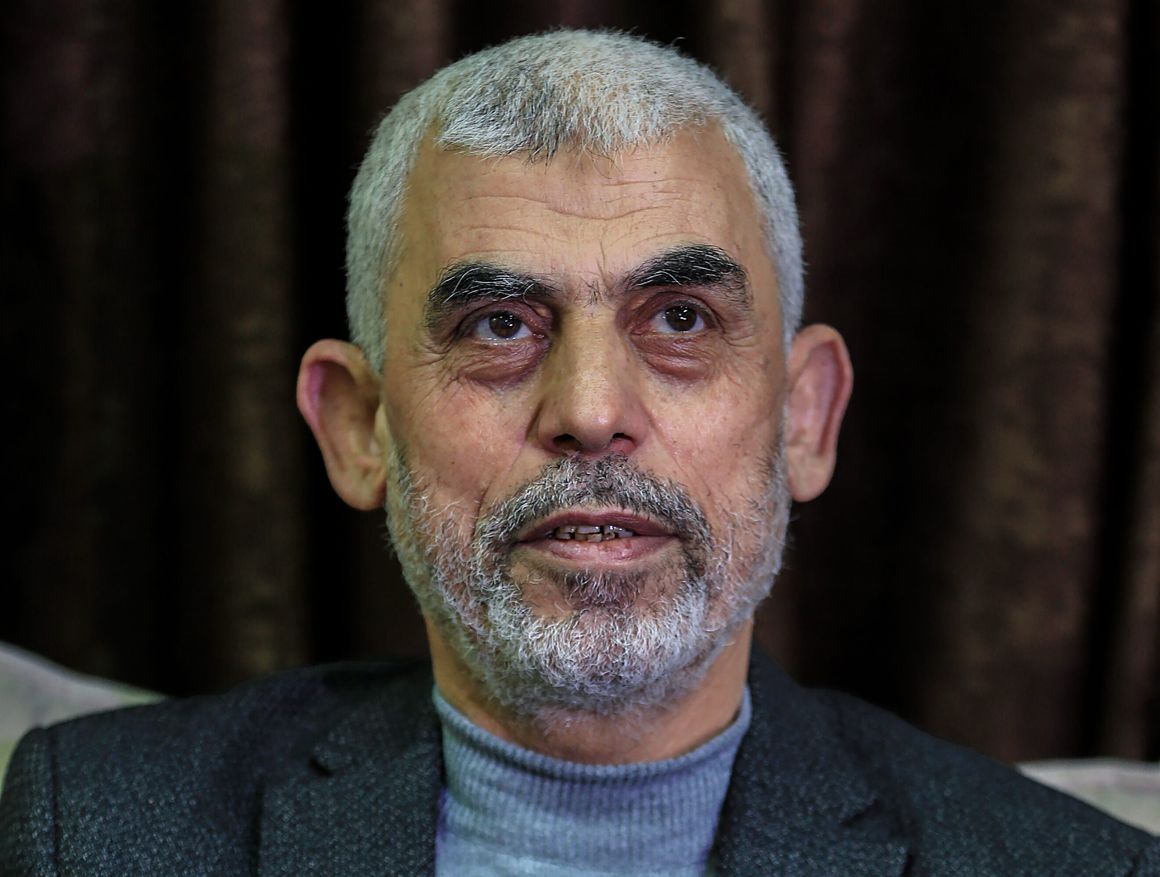- Israeli forces reportedly killed Hamas leader Yahya Sinwar in Gaza during a chance encounter while patrolling Rafah (cnn.com, CNN).
- Sinwar was hiding in tunnels and evaded detection by Israeli forces for over a year, moving frequently and avoiding electronic communications (nytimes.com, NYTimes).
- His death marks a significant milestone in Israel's campaign against Hamas, though the group maintains it cannot be eliminated (forbes.com, Forbes).
- Israeli and US intelligence had been collaborating to locate Sinwar, using electronic surveillance and other methods, but stumbled upon him by accident (bbc.com, BBC).
- Sinwar was confirmed dead through DNA and dental records; Hamas vowed to continue fighting despite his death (aljazeera.com, Al Jazeera).
From the perspective of Israel and its allies, the death of Yahya Sinwar is a major victory in the ongoing war against Hamas. Sinwar was a key figure responsible for orchestrating the October 7, 2023, attacks on Israel, and his death brings a sense of justice for the victims. This event is seen as a successful military operation that neutralized a significant threat, potentially crippling Hamas' leadership and paving the way for increased security and stability in the region.
From the perspective of Hamas supporters and certain regional actors like Hezbollah and Iran, Sinwar’s death is seen as a martyrdom in the continued struggle against Israeli occupation. Sinwar, who evaded capture for over a year, is viewed as a symbol of resistance and defiance, even in his final moments. His death is unlikely to be viewed as the end of the conflict but as further motivation for Hamas and its allies to continue their fight, bolstering calls for continued resistance against Israeli military actions in Gaza.
From the perspective of international diplomatic efforts, Sinwar's death could be seen as a missed opportunity for a ceasefire and peaceful resolution. While Israel's military operations may see this as a win, others may argue that killing key leaders like Sinwar risks escalating the violence rather than creating pathways for negotiations. There was speculation that Sinwar had been under pressure to agree to a ceasefire, and his death may prolong the war, delaying the return of hostages and worsening humanitarian conditions in Gaza.
Details
Security
Bias
Deltas
Reports across several media sources have confirmed the death of Yahya Sinwar, a senior leader of Hamas, during an Israeli military operation in the Gaza Strip. Sinwar, who had been in hiding for over a year, was reportedly killed during a chance encounter with Israeli forces patrolling the Tal al-Sultan neighborhood of Rafah. According to CNN, Israeli forces stumbled upon Sinwar while conducting routine patrols in the area, engaging in a firefight that ultimately led to his death. Sinwar was a key figure in planning and orchestrating Hamas's military activities, including the attack on Israel in October 2023, which resulted in significant casualties and the taking of hostages.
Sinwar's death marks a significant moment in the conflict between Israel and Hamas. As The New York Times reports, Israeli and American intelligence agencies had been working closely together to track Sinwar, utilizing a sophisticated array of surveillance and intelligence techniques. Despite these efforts, the manhunt for Sinwar had proven challenging, as he avoided electronic communication and moved frequently within Gaza’s extensive network of tunnels. His death was confirmed through DNA and dental records, which had been collected during his previous imprisonment in Israel. While Israeli officials view his elimination as a major achievement, it is still unclear how this will affect the ongoing conflict, particularly in terms of hostages still held by Hamas.
Throughout his time in hiding, Sinwar continued to command Hamas forces and played a critical role in ceasefire negotiations, as noted by Al Jazeera. Sinwar had long been regarded as a powerful figure within Hamas, both for his military leadership and his influence over political negotiations. In recent months, as the Israeli military escalated its campaign in Gaza, Sinwar's movements became more restricted, and Israeli forces intensified their search for him. His eventual death occurred after what Israeli forces described as a random encounter, but the operation was part of a broader effort to eliminate Hamas leadership. BBC adds that Sinwar was found alone in a building, wounded and trying to avoid detection when a drone located him. He reportedly threw a stick at the drone before Israeli forces fired a tank shell that killed him.
The implications of Sinwar’s death are being widely discussed. According to Forbes, both Israeli and American officials had viewed Sinwar's death as a potential turning point in the war. However, it remains uncertain whether this will lead to a de-escalation of violence or further fuel the conflict. Hamas, which has vowed to continue fighting, has emphasized that the death of its leaders will not end the movement. Israel, on the other hand, has hailed Sinwar's elimination as a blow to the organization's ability to conduct military operations, although officials caution that the war is not over. Israeli Prime Minister Benjamin Netanyahu has stated that the country will continue its operations in Gaza until all hostages are freed and Hamas's military capabilities are destroyed.
Sinwar’s death also raises questions about the future leadership of Hamas. As The New York Times points out, Sinwar was a central figure in Hamas’s military and political structure, and his leadership will be difficult to replace. His brother, Mohammed Sinwar, a senior figure within Hamas's military wing, is seen as a potential successor, though there is uncertainty about whether he possesses the same level of influence or strategic insight. Additionally, the continued Israeli military pressure on Gaza, combined with the loss of key Hamas leaders, is likely to affect the group's ability to govern and organize militarily. While Hamas’s leadership in Gaza has suffered significant setbacks, it remains to be seen how the organization will adapt to these losses.
The article includes quotes like 'This is how heroes die' and shares personal stories from Gaza residents expressing pride in Sinwar. It emphasizes the high Palestinian casualties and destruction caused by Israeli actions, stating 'the martyrdom of more than 42,000 Palestinians, most of them women and children.'
Read full article
The article shares videos of Sinwar expressing his desire to be martyred by Israel, quoting him saying, 'The greatest gift that the occupation can give me is to assassinate me.' It portrays him as steadfast and challenges Israeli actions.
Read full article
The article discusses how Israel's killing of Sinwar was accidental and deprived Israeli intelligence of a chance to recover from previous failures. It emphasizes the destruction and humanitarian catastrophe caused by Israeli operations, mentioning 'killing more than 42,000 Palestinians... and creating a humanitarian catastrophe.'
Read full article
Negative
Sentiment
The article discusses the potential for a ceasefire and negotiations involving Israel and Hamas, focusing on initiatives under discussion. It presents statements from various sources without taking sides, such as 'Israel could offer a pause in the offensive in exchange for the release of the remaining Israeli hostages in Gaza.'
Read full article
The article states that Hamas confirmed Sinwar's death and includes information from Al Jazeera and the IDF. It reports facts without emotive language or evident bias, noting events such as 'Hamas issued a statement confirming the killing of leader Yahya Sinwar by Israeli troops in the Gaza Strip.'
Read full article
The article provides straightforward information without loaded language, mentioning that 'Sinwar was killed on October 16 during an Israeli operation in the southern Gaza Strip.' It does not display overt bias towards either side.
Read full article

In response to questions about Sinwar's death, the spokesperson states, 'China believes that the pressing priority is to... immediately achieve a ceasefire in Gaza, effectively protect civilians.' The focus is on de-escalation and adherence to UN resolutions, without expressing bias towards Israel or Hamas.
Read full article
The article discusses how the killing of Sinwar led to heightened market volatility and increased gold prices due to geopolitical tensions. It states, 'Earlier in the week, Israel killed Hamas leader Yahya Sinwar, leading to further escalation in the Middle East.' The focus remains on financial implications rather than political viewpoints.
Read full article
The article notes, 'This week's gold price surge is mainly driven by the escalation of Middle East geopolitical tensions, including the killing of Sinwar.' It provides market analysis without inserting political opinions or biases towards Israel or Hamas.
Read full article
The article discusses potential influences on gold and oil prices, mentioning 'Earlier this week, Israel killed Hamas leader Yahya Sinwar, leading to increased tensions.' It remains focused on market trends rather than political judgments.
Read full article
The article conveys the Israeli Chief of Staff's vow to eliminate Sinwar, quoting, 'We will strive to find him, attack him and replace the head of the (Hamas) political bureau again.' It presents the information factually without expressing support or criticism.
Read full article
The article discusses Sinwar's role, quoting Israeli President Isaac Herzog's statement, 'Everything begins and ends with Yahya Sinwar.' It offers background information without using emotive language or showing clear bias towards Israel or Hamas.
Read full article
Neutral
Sentiment
The article refers to Hamas as a 'terrorist organization' and labels Sinwar as responsible for the 'October 7 massacre.' It emphasizes the success of Israeli military operations, stating that 'dozens of operations carried out by the IDF and the Shin Bet... were able to lead to his elimination.' This framing presents Israel's actions in a favorable light.
Read full article
The article refers to Hamas as a 'terrorist group' and highlights that Yahya Sinwar was 'at the top of Israel's wanted list of terrorists.' It underscores Israel's perspective by noting that authorities 'consider him responsible for the plan to carry out a terrorist attack on October 7, 2023.'
Read full article
Positive
Sentiment
-
+
Podrobno.uz Reports Death of Hamas Leader Yahya Sinwar
Podrobno.uz reports that Yahya Sinwar, the leader of Hamas, was killed by Israeli forces, a detail not covered in Western media.
The article highlights that Sinwar was killed after a year-long manhunt and emphasizes Israel's successful operation against him. -
+
NUR.KZ Hamas Confirms Yahya Sinwar's Death
NUR.KZ reports that Hamas officially confirmed the death of Yahya Sinwar during an Israeli operation.
The article provides details from both Hamas and Israeli sources, information not covered in Western media. -
+
Sama News Mentions Assassination of Ismail Haniyeh in Tehran
Sama News reports that Ismail Haniyeh was assassinated in Tehran, and Yahya Sinwar succeeded him—details absent in Western articles.
The article states that Sinwar became the leader of Hamas after Haniyeh's assassination in August, a significant event not reported in Western media. -
+
Al Jazeera Portrays Sinwar as a Hero and Martyr
Al Jazeera shares personal stories and quotes from Gaza residents expressing pride in Sinwar, which is not emphasized in Western media.
The article includes quotes like 'This is how heroes die' and highlights the impact of his death on the local population. -
+
CNGold Analyzes Market Impact Due to Sinwar's Death
CNGold articles discuss how Sinwar's death influenced gold prices, linking geopolitical events to market trends.
The articles focus on the economic implications, noting that his death led to increased market volatility and higher gold prices.
-
-
CNN Omits Reporting on Yahya Sinwar's Death
CNN's articles on the Israel-Hamas conflict do not mention the death of Hamas leader Yahya Sinwar.
While covering the ongoing conflict and Israel's military actions, CNN does not report on Sinwar's death, which is significant news covered in non-Western media. -
-
BBC Does Not Report Assassination of Ismail Haniyeh
BBC omits mentioning the reported assassination of former Hamas leader Ismail Haniyeh in Tehran.
Western outlets like BBC focus on the broader conflict without reporting on Haniyeh's alleged assassination, which is noted in non-Western sources. -
-
The New York Times Lacks Personal Narratives on Sinwar
The New York Times does not include personal stories or portrayals of Sinwar as a hero or martyr.
Unlike Middle Eastern sources, the NYT does not offer personal anecdotes from Gaza residents about Sinwar. -
-
Reuters Does Not Report Specific Palestinian Casualty Figures
Reuters avoids specifying large casualty numbers like '42,000 Palestinians killed' mentioned in non-Western sources.
The agency reports on the conflict but does not provide detailed casualty figures as emphasized in some Middle Eastern articles. -
-
Fox News Omits Sinwar's Last Moments and Videos
Fox News does not mention or show videos of Sinwar's last moments fighting Israeli forces.
Middle Eastern sources include descriptions and footage of Sinwar's final actions, which are absent in Fox News coverage.


